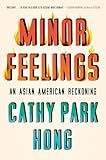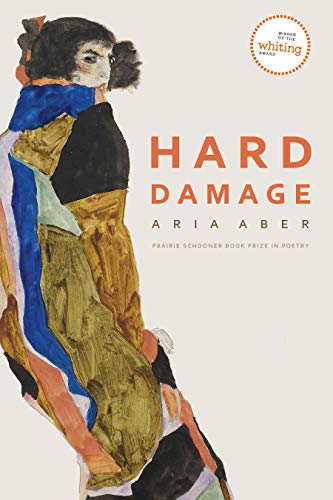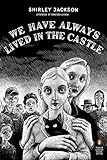I read Aria Aber’s Hard Damage for a second time while waiting for the road through the Grand Canyon to open after a snowstorm. This memory is from the last few days of 2019 but feels very much like 2020. There was nothing to do but wait, and I read, walked to the viewpoint to see how the clouds over the canyon moved and how the sunlight now hit the snow, warmed up by reading in the gift shop, read in the sunlight at another overlook, and wandered the exhibits of Desert Tower, which I would normally defer as an activity to do on another visit, another time, maybe if I had children to travel with. This memory feels like premonition of 2020—waiting for something that would allow me to move through the world the way that I originally intended but in the meantime taking in the world in the way that I hadn’t planned.
In January, I returned to the Duino Elegies in preparation for the San Francisco Symphony’s Rilke Songs, and looking back at this evening when I sat closely to other people, when I rode the bus where another passenger was literally spinning yarn, when I drank a glass of wine at the bar while reading Barbie Chang, everything feels delicate. I still knew how to shut out the noise of the world to read the words on the page, word after word, line after line. I read Little Gods by Meng Jin on another trip to the desert and turned the pages while eating lunch under the palm trees of an oasis and then on top of the mound of rocks above my campsite reading until the light faded. The next day, I carried the book to the top of a mountain and finished the book at my campsite with the last of the light.

 These early months of 2020, I often went to the neighborhood coffee shop to get a cup of tea or a glass of wine after work and read Trick Mirror by Jia Tolentino, Living a Feminist Life by Sara Ahmed, Emotional Geographies, Remarks on Color by Ludwig Wittgenstein, Illuminations by Walter Benjamin, and Regarding the Pain of Others by Susan Sontag. When the concerns around coronavirus began to spread across the country, I started a new job and took the BART into office for two days before we switched to remote work.
These early months of 2020, I often went to the neighborhood coffee shop to get a cup of tea or a glass of wine after work and read Trick Mirror by Jia Tolentino, Living a Feminist Life by Sara Ahmed, Emotional Geographies, Remarks on Color by Ludwig Wittgenstein, Illuminations by Walter Benjamin, and Regarding the Pain of Others by Susan Sontag. When the concerns around coronavirus began to spread across the country, I started a new job and took the BART into office for two days before we switched to remote work.
In the first week of the San Francisco stay-at-home order with the feeling of uncertainty and unknown heavy in the air, I read Monica Sok’s A Nail the Evening Hangs On. When the severity of the pandemic became more acute, I read A Treatise on Stars by Mei-mei Berssenbrugge. Every time I wanted to pick up from where I left off, I started from the beginning again to reread what I had already read over and over for what felt like months. I took comfort in the way Berssenbrugge wrote about distance, isolation, and connection. I opened Bury What We Cannot Take by Kirstin Chen expecting to read just a couple of pages, but I kept reading and reading all day and all night until I finished the book.


 I moved to Oakland to a house with a yard where I felt like I could spend the rest of the pandemic creating something beautiful when writing felt impossible. I read Designing California Native Gardens and Gardening with a Wild Heart as guides to plan a garden that would never be planted when the living situation became unsafe, but in the weeks before I left behind the gray globemallow and black sage I planted, I read nonfiction—The Promise of Happiness and Geographies of Exclusion—in the mornings before starting my workday and read fiction, Severance and How Much of These Hills is Gold, in the evenings with my new dog curled beside me. In the early weeks of June, Making All Black Lives Matter by Barbara Ransby and Minor Feelings by Cathy Park Hong felt important and necessary as I was trying to understand my relationship to race and racial protest as a Chinese American woman, but by July, I picked up fewer books as my living situation felt more dangerous and more uncertain.
I moved to Oakland to a house with a yard where I felt like I could spend the rest of the pandemic creating something beautiful when writing felt impossible. I read Designing California Native Gardens and Gardening with a Wild Heart as guides to plan a garden that would never be planted when the living situation became unsafe, but in the weeks before I left behind the gray globemallow and black sage I planted, I read nonfiction—The Promise of Happiness and Geographies of Exclusion—in the mornings before starting my workday and read fiction, Severance and How Much of These Hills is Gold, in the evenings with my new dog curled beside me. In the early weeks of June, Making All Black Lives Matter by Barbara Ransby and Minor Feelings by Cathy Park Hong felt important and necessary as I was trying to understand my relationship to race and racial protest as a Chinese American woman, but by July, I picked up fewer books as my living situation felt more dangerous and more uncertain.
I moved again in August, and by October, I felt as though I had not read a book in years. On a whim, I opened The Waves and was carried along by the sentences, and on these days, my dog woke me too early, before the first light illuminated the clouds. I groggily walked to my car with my little black dog and drove to the beach on days I had to move my car for street cleaning, seemingly every other day. We were often the only ones walking the length of the beach as the sea birds warily watched us and the black crows taunted my little black dog who barked at them. I voraciously read We Have Always Lived in the Castle by Shirley Jackson, Postcolonial Love Poem by Natalie Diaz, Timefulness by Marcia Bjornerud, and Unreality of Memory by Elisa Gabbert and revisited The Wild Iris and Averno by Louise Glück.
The week of the election, I started reading The Next American Revolution by Grace Lee Boggs and Golden Gulag by Ruth Wilson Gilmore in the attempt to think about the world that is possible, and I feel that I am reading to prepare to move through the world in the ways that I want.
More from A Year in Reading 2020
Don’t miss: A Year in Reading 2019, 2018, 2017, 2016, 2015, 2014, 2013, 2012, 2011, 2010, 2009, 2008, 2007, 2006, 2005
















